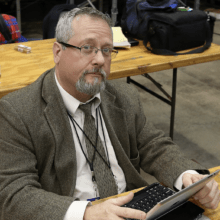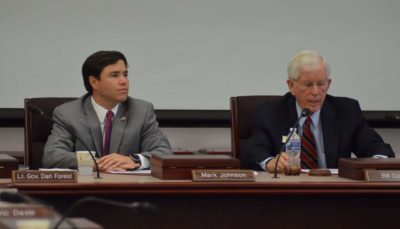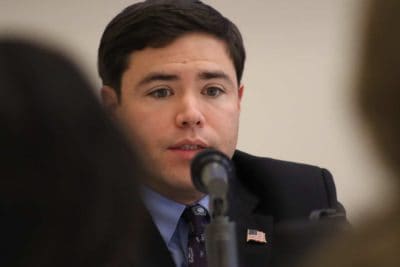

The N.C. Local Government Commission Tuesday approved $11.3 million in construction bonds sought by Jones County Schools. But members expressed deep reservations about the statewide precedent it set allowing private ownership of public school buildings.
“We’ve got to get this right for Jones County,” said state Treasurer Dale Folwell, chairman of the Local Government Commission.
Supporters say this could be a once-in-a-generation shot to build a desperately needed K-12 school in a poor county with meager tax revenue. The school is projected to open for the 2019-20 school year.
Folwell and State Auditor Beth Wood peppered school district officials with a series of questions. They focused on whether First Floor K-12 Solutions deserved such an unusual and potentially risky contract, and why local officials appeared to perform only minimal vetting of the contractor.
Under the contract, First Floor will own the $45 million school building and the school district will lease it for seven years. Some $30 million of the funding will come from state appropriations and county sales tax revenue.
Folwell questioned First Floor’s worthiness, noting it is being sued in Horry County, South Carolina, over cost overruns and failure to meet construction guarantees on several schools. That state’s Bureau of Investigation is conducting a probe into the business. Jones County officials said they weren’t aware of those actions.
Wood said Hoke County Schools officials refused to answer Local Government Commission questions over whether First Floor could satisfy guarantees it gave to save electricity costs by using solar and other renewable energy components — a big reason it won a contract there.
She said the lack of cooperation made her suspicious about First Floor.
“I worry that the people on the other side are not as honest as you,” Wood told Jones County officials. She said she wants to ensure school officials and county residents, including her family members, don’t suffer from a bad decision.
“First Floor Solutions has a horrible reputation,” Wood said. “I have grave concerns.”
She said signing off on this bond would make it harder to turn down similar projects in the state’s other 99 counties.
“Not everybody has a Harry Brown,” Wood said, referring to the Senate majority leader and chief budget negotiator from Onslow County. Brown helped steer state lottery proceeds and Golden LEAF revenue to the cash-strapped county for the school project.
Those extra proceeds cushion the county from risk if First Floor went belly-up for any reason, Wood said. Other counties making similar deals would face greater taxpayer liability because the state might not underwrite most of their debt and the counties and would have to borrow much more for construction.
Local Government Commission Secretary Greg Gaskins said Jones County should not have signed a pre-development agreement with First Floor without understanding all the implications, and paying for the architectural design before bonds were approved. A complicated financing agreement with Capital One using state tax credits instead of cash to repay some of the debt further muddied the arrangement.
Wood worries the bond signals to school districts it’s easier to ask forgiveness after they enter an ill-advised project than to get permission at the front end.
Gaskins said the contract would add between 5 and 12 percent to construction costs, compared to 2 percent to 3 percent for traditional bond financing. Commission staff related that concern to Brown’s office.
Because Jones County is borrowing only $11 million, the added costs aren’t particularly harmful, Gaskins said. In other school districts that take out larger bonds, that difference could be crippling.
Despite questions about the higher costs, Gaskins said the project appears to comply with a statute the General Assembly passed this session letting private entities build and own public schools and lease them back to the school district.
“Without a doubt, the private sector should collaborate with school boards and county commissions to finance, build, and operate public school buildings,” Terry Stoops, vice president of research and director of education studies at the John Locke Foundation, told Carolina Journal after the meeting.
But transparency and accountability must be a vital part of the process, he said, and the new law falls short.
“My hope is that lawmakers revisit the law, and strengthen safeguards for taxpayers in counties that pursue public/private partnerships for school facilities,” Stoops said.
Gaskins suggested the commission join with other interested parties to express concerns to the General Assembly about this funding mechanism. Part of the discussion should include whether the commission should have greater authority in the approval process.
Members approved the bond on a split vote.
The motion contained a caveat the Jones County Board of Education agree to answer all commission questions about cost, operation, debt, and money required to complete the project, and to provide supporting documentation.





